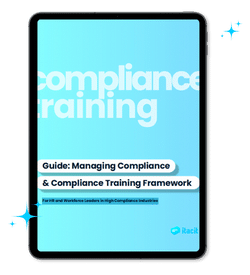A few months ago, I shared my thoughts on the Great Resignation. A lot has changed since then – with the world finally starting to see the finish line of the pandemic. There’s no doubt that remote and hybrid work are here to stay, but I know for a fact that many people are also eager to get back to the office.
At the same time, virtual work has led many people to rethink their whole idea of work, and how their job fits into their lives. Once the daily commute into the physical office disappeared, a lot of folks started thinking about new opportunities, changing roles, or even braving it as entrepreneurs.
Seeing how freely many workers have left jobs, changed careers, or started a business, it’s no surprise that the pandemic has shaken up hiring practices. Today, there is a lot of pressure on leadership to find great employees and retain that top talent.
So why do people leave a good job?
There’s no blanket answer to that question. I’ve seen people leave for several reasons – a mismatch with the company culture, a drive to learn something completely new, earn more money, get better benefits… the list goes on.
In my career so far, I’ve had the chance to meet, work, and exchange ideas with many great leaders. When it comes to employee retention, every single one of them was positive: you have to work with your staff. Give them the platform to speak, listen carefully, and engage with what they say.
One thing’s for sure, people want the option to work from home. If you can’t or are unwilling to offer remote work options, don’t be surprised if you suffer from higher-than-average turnover. It starts with trusting your employees to get the job done, regardless of where they are based.
Above all, as a leader, you have to be adaptable. Create an environment that gives your employees the flexibility they need to achieve the work-life balance they want. Try to understand your team’s needs on a group and individual level. A little empathy goes a long way.
Moving toward the Future of Work
If there is anything I’ve learned in the past couple of years, it’s that people really want to work. They want to learn, and contribute positively to reach common goals and objectives. Giving them the tools they need – training, flexibility, responsibility, autonomy – will make them more engaged at work.
After some thinking, I don’t really think the Great Resignation is a direct condemnation of the status quo. It may just be a sign that times are changing. A window into the future of work.
We need to stay ahead of the curve to keep great people hired, happy, and motivated.









